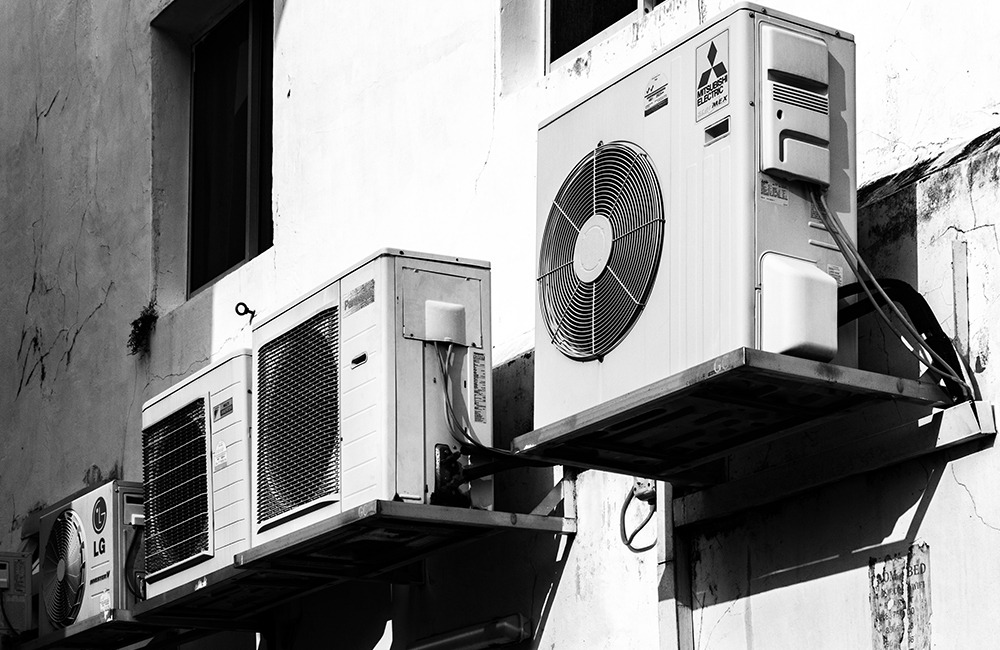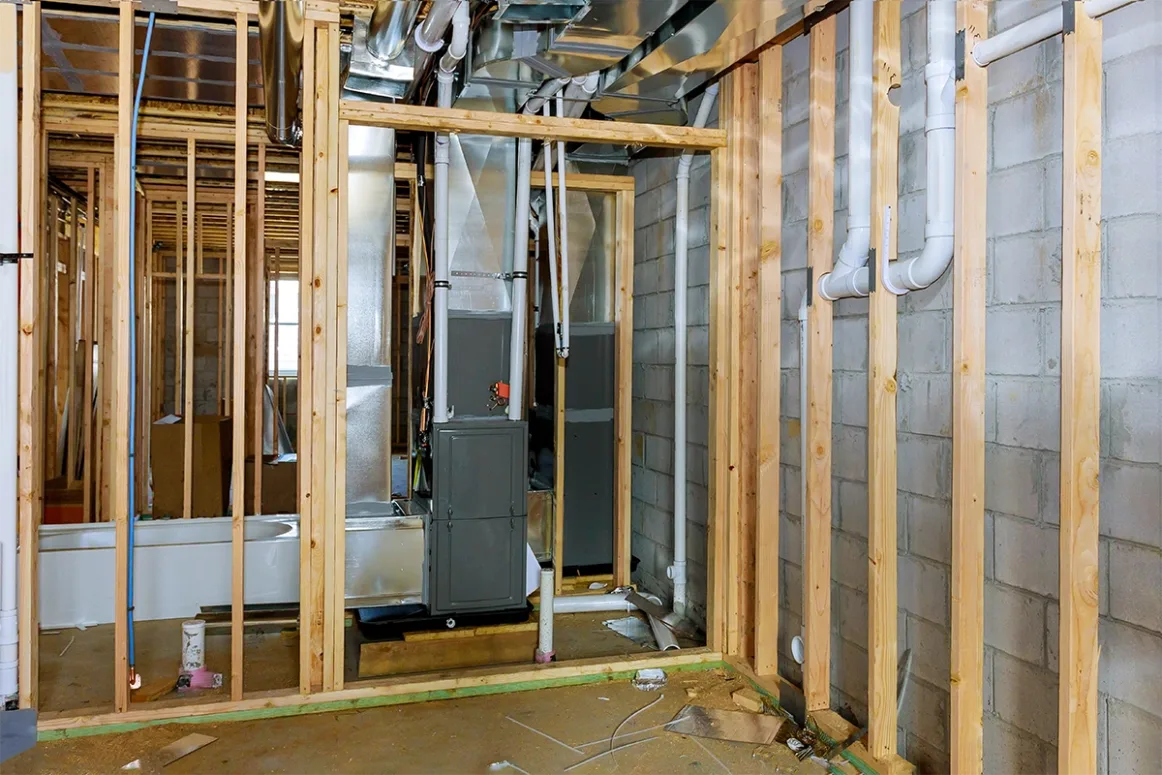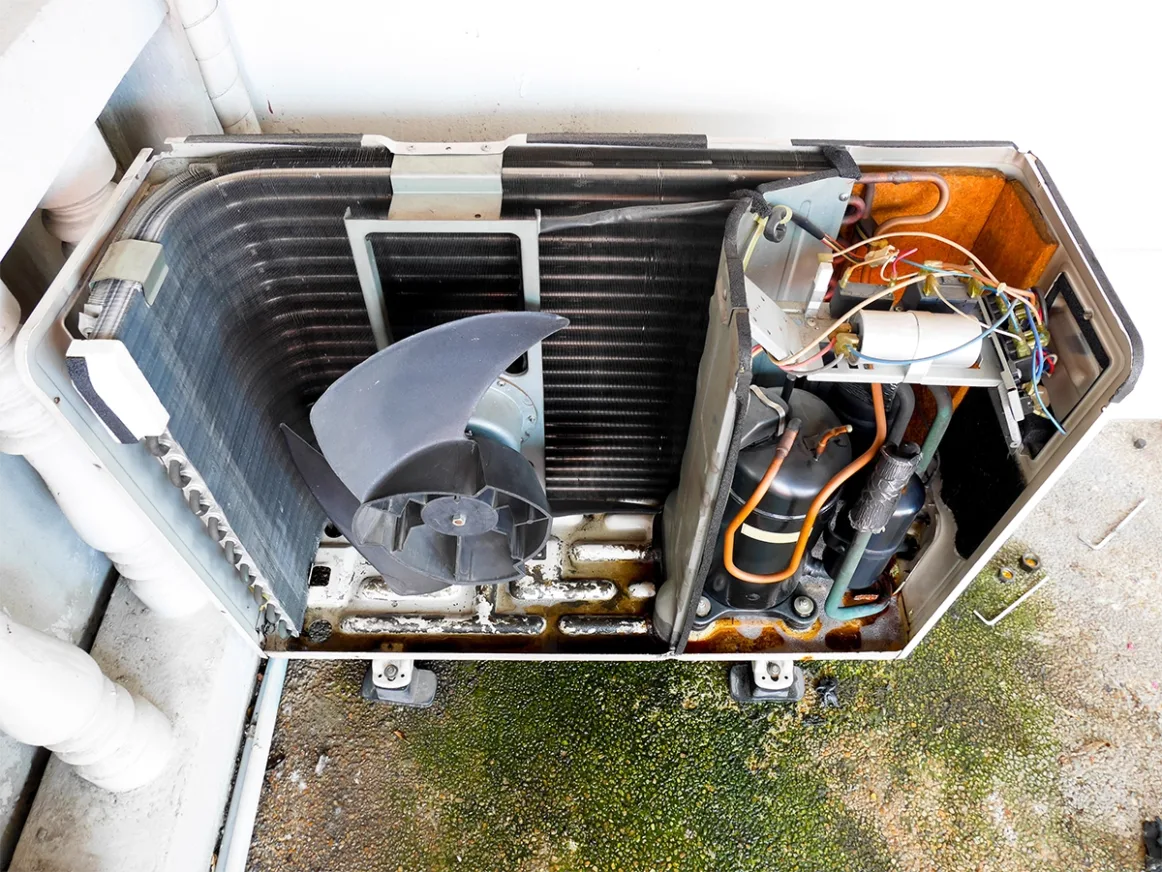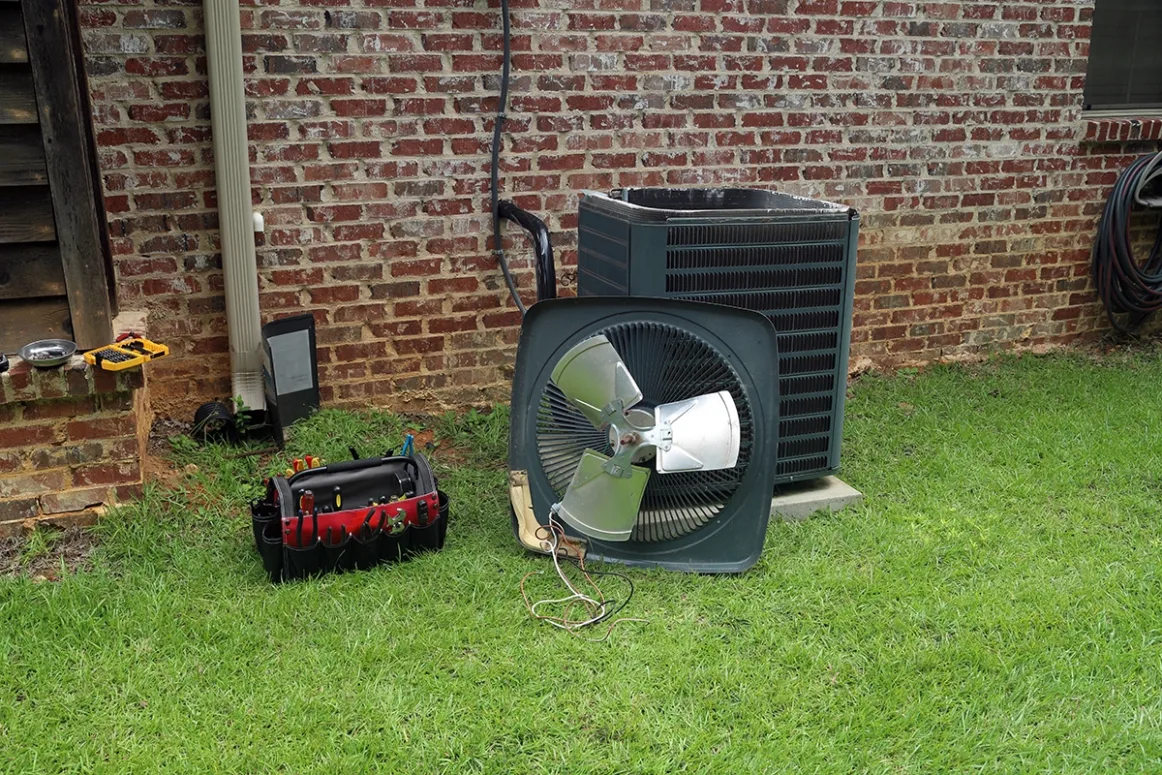
How to Reduce Harsh Air Conditioner Noises
Is Air Conditioner noise harming you?
Apart from the fact that they can be annoying, loud noises tend to have more dramatic and harmful effects than softer ones. Different people react to sounds differently, but loud enough sounds lasting for a long enough time can damage your hearing or even lead to a complete loss of hearing. The louder the sound, the shorter the amount of time you can be exposed to it before it causes damage.
Need help with a noisy air conditioner? Call us today: (678) 324-8210
Sound volume is measured in decibels (dB). For humans, sounds above 85 dB are harmful depending on the duration of the sound, how often you hear it, and whether or not you are wearing hearing protection when exposed to those sounds. Normal conversation takes place at an average of 60 dB. A rock concert is about 120 dB. Heavy traffic, window air conditioners, noisy restaurants, and power lawn-mowers all fall in the range of 80 to 89 dB. This makes it worth paying attention to any noise coming from the air conditioner unit in your home. Loud noises coming from your air conditioner are not just an obstacle standing in the way of you and your family getting a good night’s sleep. They can also cause significant hearing damage if allowed to go on for the long term.
But if there is a problem, there is also a solution. Loud noises from your air conditioning unit can be reduced. So, what can you do to fix this problem? Here are five ways you can quiet down a noisy air conditioner.
Location is everything
If you are installing a new HVAC unit, choose the air conditioning unit’s location very carefully. Employing a trusted HVAC contractor can help guide you in finding the best site. It should be placed as far away as possible from bedrooms and any rooms you use frequently. The distance will put a damper on the noise that reaches you, so the further you are away from the source of the sound, the better off you will be.
You should also avoid installing the unit near air ducts or in narrow hallways. Smooth, hard surfaces are the perfect place to bounce sound around, making the air conditioner’s noises sound even louder. Your contractor can help you finalize the ideal location for the installation of your new AC to get good airflow and minimize noise.
Every time the air conditioning unit starts or stops it makes a rumbling sound, so you should try to limit the number of times that your AC cycles on and off to reduce that source of noise. The advice of a professional HVAC technician can help you identify ways to do this with your specific system.
Keep the sound undercover
Restful sleep is vital for the health and wellness of you and your family. You can help reduce sleep disruptions from HVAC noise by muffling the sound coming from your air conditioning unit using a sound blanket, also called a noise blanket. You can have your HVAC technician install the blanket over the compressor of your air conditioner. A noise blanket is made from fiberglass covered with a vinyl face. The blankets are designed to absorb the sound that comes out of the compressor and keep it to a minimum without compromising the unit’s efficiency.
Organic noise cancellation: Go green!
Vegetation acts as a sound barrier. In other words, it works like a noise-cancellation mechanism. If you want as much peace and quiet as possible while you sleep, try adding some greenery behind your AC’s compressor. In addition to absorbing your air conditioner’s noise, adding foliage around the house increases curb appeal.
But be careful where you place the greenery. There should always be a gap of at least two feet between plants and the unit’s compressor. Space allows for proper noise cancellation and the best performance of your unit. Improper distance and installation of plants around the unit may increase the noise or redirect it in the wrong way. Worse, it can also lower the performance of your air conditioning unit by obstructing the airflow. You will want to prune the vegetation regularly to ensure there is no overgrowth for the same reason. You can always consult your HVAC technician who will help you find the plants’ best location to provide the perfect noise cancellation without interfering with your unit\’s performance.
Care for your AC and it will care for you!
All HVAC units make some minimum level of sound. But if you’re noticing extra or excessive noise coming out of the unit, that means there is a problem. It could be clogged, damaged, have a loose component rattling on the inside, or a sensor miscalculating because of wear and tear. If you hear distinct screeching, squealing, droning, or clunking sounds coming from your unit, it’s a sign that it is not functioning correctly and needs to be serviced.
Regular maintenance of an air conditioning unit can help you avoid this situation. Some people believe that having their HVAC units regularly checked by a professional technician is a waste of time, but it can significantly improve the lifespan of an air conditioning unit and reduce the chances of it making undesirable noises. The technician will change the filters, unclog the drains, clear out debris, run a series of maintenance checks and perform repairs to your unit whenever necessary. Employing a professional for the regular maintenance of your air conditioning unit helps ensure its continuing peak performance and provides peace of mind.
Your A/C has limited lifespan
All air conditioners make noise, but older units tend to generate a lot more. Older models do not have variable speed blowers, so they run on full capacity. This extra work makes them generate a lot more noise compared to newer ones. Variable speed blowers in modern A/Cs produce less noise because the blower fans vary with heating and cooling demands so it isn’t always running on full blast. Also, newer air conditioning units are designed with improved noise-reducing technology. In addition to the variable speed blower fans, other developments include more efficient insulation around the air compressor, improved fan design to reduce blade noise, and enhanced vent designs that muffle the sound as it exits the unit.
If you have an air conditioning unit that is very old, makes too much noise, and has already lived its best days, it may be time to consider upgrading it with a newer model rather than spend money sound-proofing the old one. A new system is quieter, experiences much fewer maintenance issues and out-performs older models. You may not need to worry about sound reduction tactics with your new unit at all, letting you get back to a peaceful home with quiet nights.
Suppose a new air conditioning unit isn’t quite within your budget. In that case, you can have your older unit upgraded with a variable speed blower fan. This may give you a few extra years before it’s time for a total unit replacement.
No one wants annoying HVAC sounds distracting them during the day or disrupting their sleep at night. You deserve to have an air conditioning unit that performs its job without disturbing your family. Try some of these tips today, or contact your local HVAC company for additional individualized advice or schedule service.





